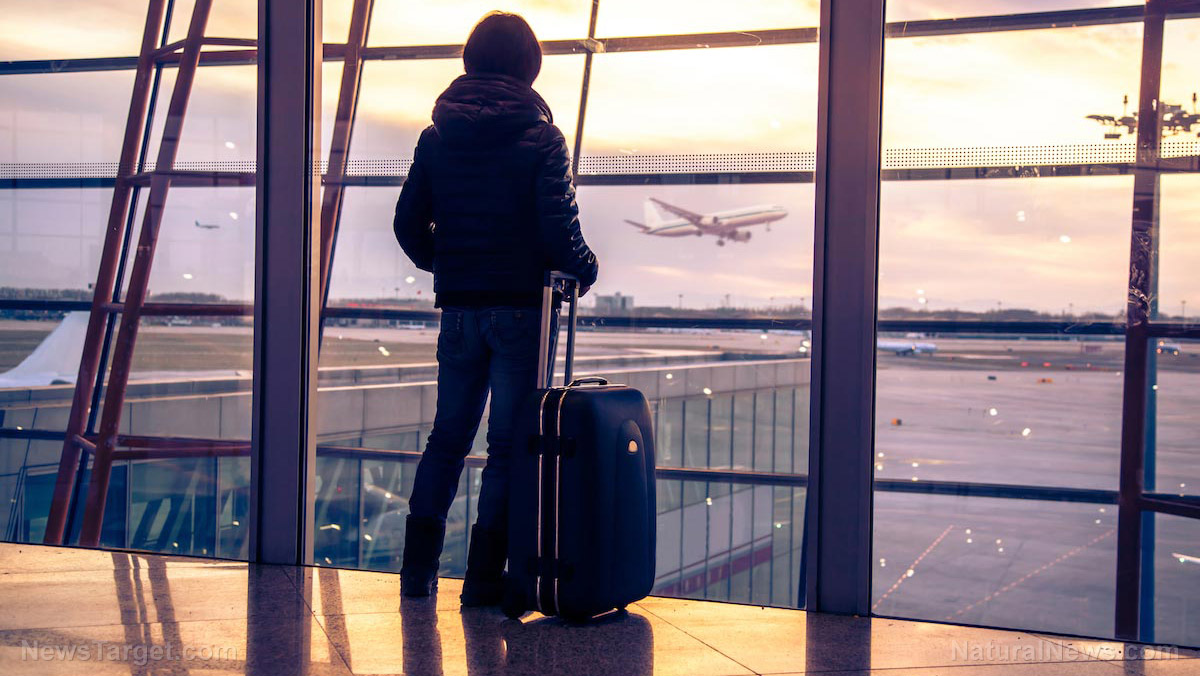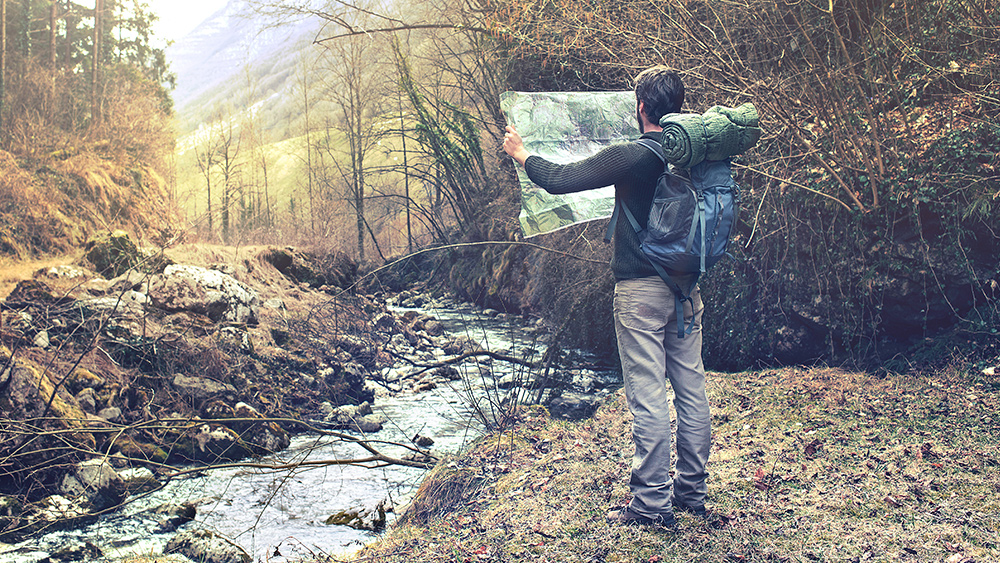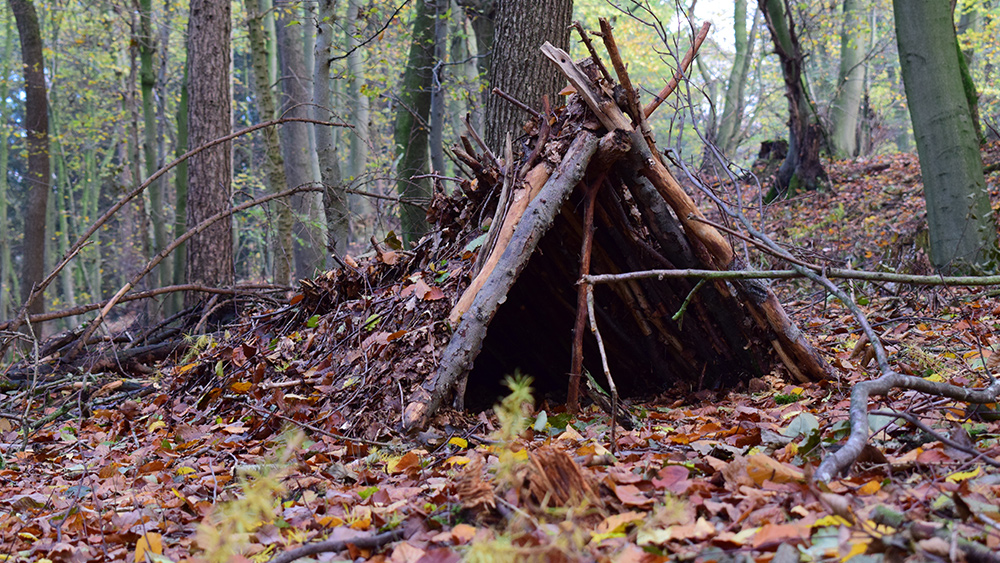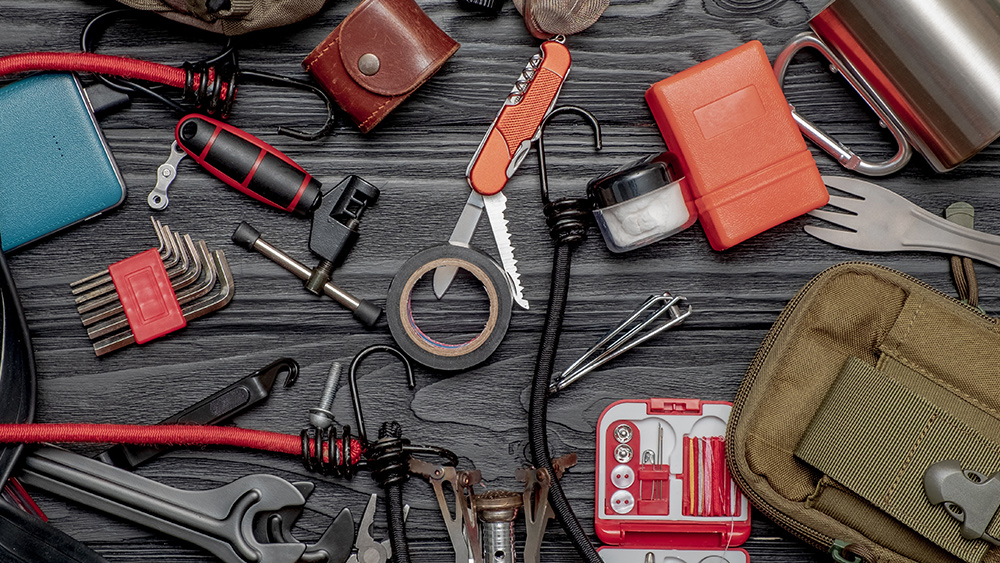
You need to have situational awareness and maintain personal safety when you are on the road to reach your destination safely.
Whether you're at home, the airport or in a foreign country, your personal safety and accountability should always include having an entrance and exit plan. Even if there are restrictions imposed while you're traveling, you can take steps to ensure your personal safety.
If you're worried about traveling, detailed below are some tips that can help you stay safe before, during and after travel. (h/t to PreppersWill.com)
You must be responsible for your own safety
Studies show that the average response time for law enforcement nationwide in 2013 was 11 to 18 minutes. The average gunfight lasts three seconds, while a shooting incident lasts about 12.5 minutes.
Based on these numbers, you may be unable to rely on others for assistance when you need help and you are ultimately responsible for your personal safety.
If you're traveling, you should always take steps to maintain your personal safety before, during and after your trip. (Related: Prepping 101: What is situational awareness and why is it crucial for your personal safety?)
Safety tips before your travel
First, plan ahead if you're going to travel.
Check gun laws by state. You have the option to carry allowed weapons like a firearm or an edged weapon, or you can rely on your skills in hand-to-hand combat.
After you have decided on your weapon of choice, make sure you practice with it so you can rely on your marksmanship or combat skills if SHTF while you're traveling. Familiarize yourself with the licensing laws in your area. If you are flying with a firearm or a handheld weapon, consult with both the TSA and the airline to ensure you follow the proper procedures.
This isn't an option for international travel.
Before you leave, do some research on your destination. When flying into an airport or arriving at a train station, research the various modes of transportation available in the area and how to access them.
Make sure public transportation is a practical and safe option if you want to commute to your accommodations.
It's also a good idea to check free crime reporting websites to get a sense of crime trends in the transiting area. While some may not be as detailed, they will give you an idea of which areas have a high incidence of crime.
When using taxi or car services, make a list of reputable companies and pick-up locations ahead of time. Confirm if they’re regulated in your area.
Note that taxi services in America are regulated and have set prices in each state. They usually offer two to three price brackets for daytime, nighttime and peak hours.
Additionally, most taxis in the U.S. are outfitted with security cameras and GPS trackers.
However, when traveling abroad, not all cabs are regulated. If you need a cab, call one instead of hailing one. Look for numbers and labeling on the outside of the cab when it arrives.
When you're in the can, look for a meter, radio and badge on the inside. Know where you're going and always check updated currency conversions in your destination country.
Ride-sharing services like Uber and Lyft are also popular modes of transportation. Most ride-sharing services are regulated and state and territory governments impose different requirements on drivers before they can drive clients.
Uber drivers are usually required to have a state-based driver authority, like a taxi driver. This often includes a criminal history and medical check, along with proof of insurance.
Rideshare services have different parameters in place to ensure the safety of passengers, such as:
- Drivers are not anonymous – Passengers receive the driver's name, photo, vehicle information and contact number. Each journey is also documented.
- GPS tracking – After your driver accepts your request, the journey is tracked using GPS on both your phone and the driver's phone. You also have the option to share your ride with friends or family so they can keep track of your progress.
- Rating system – Passengers can anonymously rate drivers on a scale of 1 to 5. Drivers' accounts may be deactivated if they consistently receive low ratings.
Before traveling, take note of high-crime neighborhoods or areas and avoid them if possible.
When booking a hotel, make reservations at a well-known, reputable brand. Most hotel chains have a rewards program and a website where you can book reservations, which often has a star rating system.
Ask for a room on the upper floors when making your reservation. Higher floors make it harder for outsiders walking in off the street and easily accessing your room.
Once you’ve made your reservation, write down the hotel’s address and phone number and keep it somewhere easy to check so you don't have to rummage in your bag. Human predators may take advantage of you being distracted to steal from you or follow you somewhere secluded.
Familiarize yourself with the area, especially if you've booked your travel accommodations through an online hospitality service that rents out private residences, like Airbnb.
When choosing which service to use, check if the rental area is secure and if public transportation is accessible.
Confirm if the house will be occupied by the owner while you’re renting. If you’re renting a car or driving to your destination, ask if there is parking available at or near the rental.
Before booking a room or house, check reviews from previous renters and always rent from a trusted source.
Safety tips during your travel
Body language says a lot about you. Even if you are unsure, move with confidence.
Regardless of your destination, never advertise that you’re traveling alone or that you’re a tourist.
Remember that anything you say or do in public can be heard or seen. Never speak openly about your plans, where you're staying, or if you're traveling alone because someone could use this information against you.
Wear simple clothing and accessories. Don't wear flashy jewelry, especially when traveling alone in crowded areas.
Don't keep all of your money in one place. Store extra cash and credit cards in two or three different places so that if one of your stashes gets stolen, you still have money for the rest of your trip.
When traveling abroad, always research local customs and dress appropriately. Read up on cultural etiquette in the areas you will be visiting, whether inside or outside the United States.
Always stay or walk in well-lit areas with high pedestrian traffic.
If you are attending a party, drink responsibly. Never leave your drinks unattended and refuse drinks from strangers.
If you do get drunk, call a reputable car service. There have been reports of drunk people getting mugged or worse because they assumed that they would be safe once they're in a cab.
To avoid misplacing or losing hotel keys, have only one keycard made for your room. When you’re in the room, lock the door and use any extra security locks.
Since not all hotel doors have additional security features, it's a good idea to bring a rubber or tactical doorstop with you to check the door from the inside. This will make it harder for someone to forcibly enter your room.
Store your identification papers and high-value items in the room’s safe. If you room doesn't have an in-room safe, ask to use the front desk's safe deposit box, if they have one.
When you leave your room, leave the "Do not disturb" card on the outside of the door and leave the radio or television on. This makes it look like your room is occupied, which is crucial if you're traveling alone.
Always search the hotel room safe for personal items before checking out of the hotel to make sure you don't leave anything behind.
When it's time to leave, don't throw away anything that could be used to identify you like mail, agendas, old boarding passes, or receipts. While most hotels no longer attach personal information to room keys, turn in or take hotel keys with you.
If you are staying in a private residence booked through an online hospitality service, prepare ahead of time for your personal safety. Communicate via the booking site, set expectations with your host for your visit in advance and never leave personal items behind.
Stay alert at airports and other major transportation hubs. Since many people from all over the world travel through these various networks daily, they are often a target for scammers and thieves.
Keep an eye on your personal items at all times. Never leave your bags unattended.
Safety tips after your travel
You need to remain vigilant even when your trip is over and it's time to go back home.
Check your luggage upon arrival so you don't forget anything. Check your bank accounts and credit card statements regularly to confirm that none of your accounts have been compromised. You should also check your credit report regularly for any signs of fraudulent activity.
Practice situational awareness at all times. Even if you're back at home, you need to remain vigilant so you can keep your family safe from various threats.
If you are traveling alone domestically or internationally, stay alert and never tell anyone you're alone or where you're staying. Constant vigilance is key to your personal safety, whether you're at the airport or at your destination.
Watch the video below to know more about useful holiday travel tips from Mike Adams, the Health Ranger.
This video is from the Health Ranger Report channel on Brighteon.com.
More related stories:
10 Prepper skills that will help improve your street-smarts.
Self-defense basics: 4 Tips that will improve your situational awareness.
Fit and ready: Self-defense tips for preppers.
Sources include:
Please contact us for more information.




















